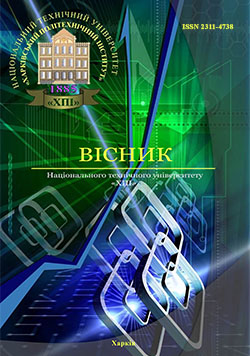GENDER MAINSTREAMING AS A KNOWLEDGE COMPONENT OF URBAN PROJECT MANAGEMENT
DOI:
https://doi.org/10.20998/2413-3000.2017.1225.4Keywords:
knowledge management, urban project, gender diversity, gender sensitive planning, gender mainstreaming, friendly urban spaceAbstract
The concept «gender» is included in socially-oriented urban projects at the level of a process of planning and designing. Gender planning assumes in finding ways to convert the harmonious combination of rights and opportunities for women and men in «urban landscape» as «quality living spaces». It is noted that the current policy of Ukrainian cities generally is gender-blind. The living space is considered as gender asymmetry, particularly in terms of providing the right to access to the «urban spaces». The gender-sensitive indicators of urban planning which might have a transformative impact on the beneficiaries’ gender+ practices are proposed. The integrated framework for rendering urban planning is developed and tested on the examples within the Ukraine context of green landscaping, neighborhood design projects.
References
Landry C. The Creative City: A Toolkit for Urban Innovators. London, Routledge, 2008. 300 р. doi: 10.7202/037515ar
Beall J. Participation in the city: where do women fit in? Gender & Development. 1996, vol. 4, pp. 6–19. doi: 10.1080/741921946
Gutiérrez V. В., Ciocoletto A. Estudios urbanos, género y feminismo: Teorías y experiencias. Barcelona, Col·lectiu Punt, 2012. 500 p.
Theorizing and practicing gender sensitive planning in Europe discourse: Documentation Scientific conference with integrated meeting of the European network «Gender, Diversity and Urban Sustainability (GDUS)». Hannover, 2012. 131 p.
Bissuti R., Raffler R. Gender mainstreaming made easy. Practical advice for more gender equality in the Vienna City Administration. City of Vienna, 2011. 46 p.
Gender and Urban Planning: Issues and Trends. Nairobi: United Nations Human Settlements Programme, 2012. 74 p.
Whitzman C. Legacy C., Andrew C., Klodawsky F., Shaw M., Viswanath K. Building Inclusive Cities. Women’s Safety and the Right to the City. London: Routledge, 2013. 240 p. doi: 10.1080/13552074.2013.802144
Zibell B. Gender Building: Sozialraeumliche Qualitaeten Im Oeffentlichen Hochbau. Frankfurt am Main: Beiträge zur Planungs- und Architektursoziologie. Band 6, 2009. 217 p.
Amin E., Trift N. Vyraznist povsyakdennoho mista [Severity of everyday city]. Nezalezhnyy kulʹturolohichnyy chasopys «YI» [Independent cultural journal "JI"]. 2003, no. 29. Available at: http://www.ji.lviv.ua/n29texts/amin-trift.htm. (accessed 9.12.2016).
Chambers I. Migrancy, Culture, Identity. London, New York, Routledge, 1994. 154 p. doi: 10.4324/9780203182093
Parsons D. Streetwalking the Metropolis: Women, the City and Modernity. Oxford, Oxford University Press, 2000. 265 p. doi: 10.5860/choice.38-5419
Kronenberg C., Engel P. Gender Mainstreaming – Sähe Köln anders aus, wenn... Berlin und Köln: Gender Mainstreaming Beispiele aus den Kommunen zur Gleichstellung. Arbeitshilfe des Deutschen Städtetages, 2012, pp. 27–36.
Bibik N. V., Fesenko G. G., Fesenko T. G. «Genderní okulyari» dlya urbanístív ["Gender Glasses" for urbanists]. Hender. Ekolohiya. Zdorovya: materialy IV Mizhnarodnoyi naukovo-praktychnoyi konferentsiyi, prysvyachenoyi 210-richchyu Kharkivsʹkoho natsionalnoho medychnoho universytetu. [Gender. Ecology. Health: Materials IV International scientific-practical conference devoted to the 210 anniversary of Kharkiv National Medical University]. Kharkiv, KNMU, 2015, pp. 41–42.
Dölling I. 30 Jahre feministische studien: Wie mit dem feministischen Erbe umgehen? Feministische Studien Stuttgart. 2013, no 1, pp. 29–34. doi: 10.1515/fs-2013-0107
The Town for Equality: A methodology and good practices for equal opportunities between women and men. Paris, Bruxelles: DG Employment and Social Affairs, 2005. 68 p.
Sanoff H. Multiple views of participatory design. Focus. 2010. vol.VII, pp. 11–21. doi.org/10.15368/focus.2011v8n1.1
Building Child Friendly Cities. A Framework for Action. Florence: Innocenti Research Centre, 2004. 24 p.
Derzhavni budivelʹni normy. DBN V.2.2-5:2011. Blahoustriy terytoriyi [Landscaping]. Vveden. 2012-09-01. Kyiv: Minrehionbud Ukraine, 2012. 44 p.
Fesenko T. G., Minayev D. M., Belyatsky O. V., Usachev I. S. Implementatsiya hendernykh pidkhodiv u munitsypalʹni prohramy rozvytku zhytlovo-komunal noho hospodarstva [Implementation of gender mainstreaming in municipal development programs housing and municipal economy]. Materialy III Mizhnarodnoyi naukovo-praktychnoyi konferentsiyi «Henderna polityka mist: istoriya ta suchasnist» [Materials III International Scientific Conference "Gender politics Bridge: History and Modernity"]. Kharkiv, HNUMG im. O.M. Beketov, 2013, vol. 4, pp. 238 –240.
Fesenko T. G., Minayev D. M. Kliyentotsentryzm v upravlinni komunikatsiyamy proektiv (na prykladi zhytlovoho budivnytstva) [Costomer focus in the project communications management (on the example of house building)]. Vostochno-evropeyskyy zhurnal peredovykh tekhnolohyy [Easten-European Journal of Interorise Technologes]. 2014, no. 5/3( 71), pp. 4–10.
Fesenko T. G. Formuvannya zmistu portfelya investytsiyno-budivelnykh proektiv [The formation of content of investment and construction projects portfolio]. Visnyk NTU «KHPI». Seriya: Systemnyy analiz, upravlinnya ta informatsiyni tekhnolohiyi [Bulletin of NTU "KhPI". Series: System analysis, control and information technology]. 2014, no. 2 (1045), pp. 45–52.
Downloads
Published
Issue
Section
License
Copyright (c) 2017 Tetiana G. FESENKO

This work is licensed under a Creative Commons Attribution-NonCommercial-ShareAlike 4.0 International License.
Our journal abides by the Creative Commons copyright rights and permissions for open access journals.
Authors who publish with this journal agree to the following terms:
Authors hold the copyright without restrictions and grant the journal right of first publication with the work simultaneously licensed under a Creative Commons Attribution-NonCommercial-ShareAlike 4.0 International License (CC BY-NC-SA 4.0) that allows others to share the work with an acknowledgement of the work's authorship and initial publication in this journal.
Authors are able to enter into separate, additional contractual arrangements for the non-commercial and non-exclusive distribution of the journal's published version of the work (e.g., post it to an institutional repository or publish it in a book), with an acknowledgement of its initial publication in this journal.
Authors are permitted and encouraged to post their published work online (e.g., in institutional repositories or on their website) as it can lead to productive exchanges, as well as earlier and greater citation of published work.

